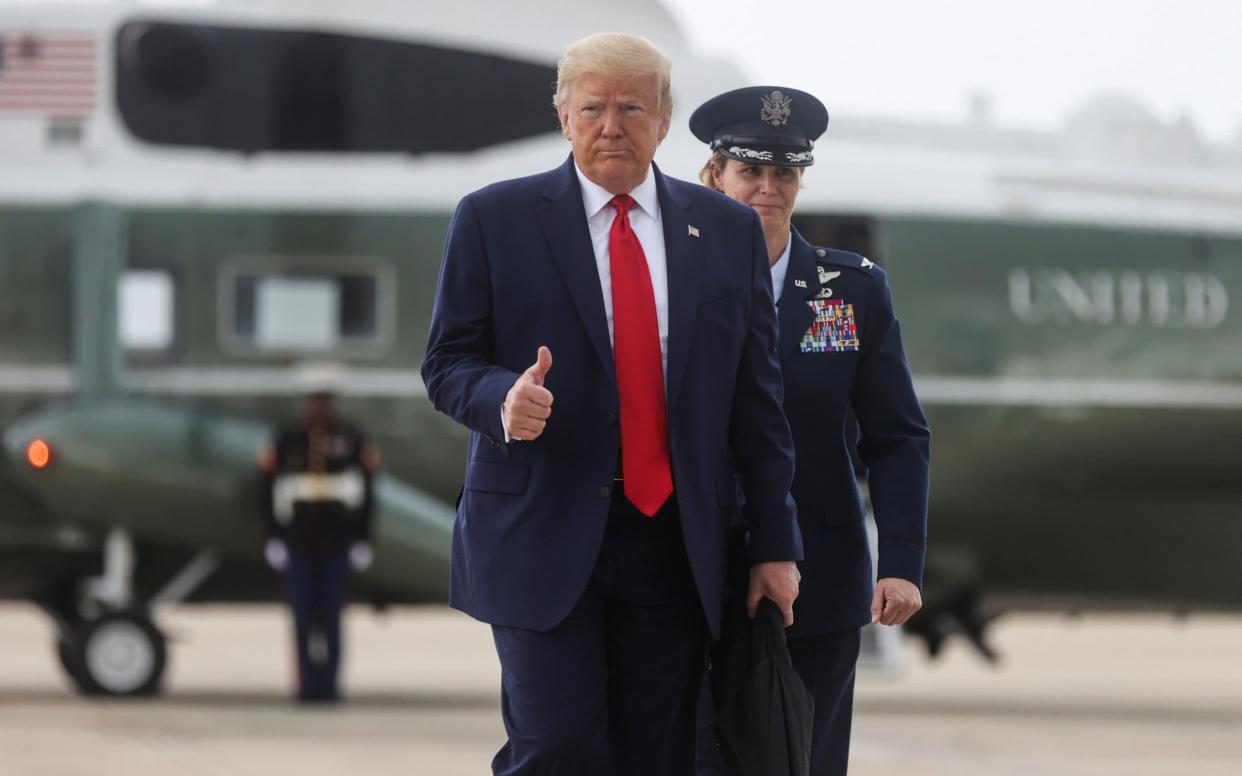Trump orders sanctions against war crimes court as he ups the ante over Afghanistan investigation

Donald Trump has ordered sanctions against the International Criminal Court in an attempt to block its investigation of alleged crimes against humanity by US troops and the CIA in Afghanistan.
The US called the Hague-based ICC a "grossly corrupt kangaroo court" and claimed it was being "manipulated" by Russia.
It also warned Nato allies, including the UK, to stand with the US, saying: "You're people could be next."
In an extraordinary move, the ICC hit back at Mr Trump.
"These attacks constitute an escalation and an unacceptable attempt to interfere with the rule of law and the Court's judicial proceedings," the court said in a statement.
The ICC also said that the "unprecedented" sanctions "undermine our common endeavour to fight impunity and to ensure accountability for mass atrocities".
The court added: "An attack on the ICC also represents an attack against the interests of victims of atrocity crimes, for many of whom the Court represents the last hope for justice."
The move was the latest escalation by the White House as it seeks to prevent the court launching a detailed examination of America's longest war.
It includes economic sanctions and travel restrictions against court employees directly involved in investigating or prosecuting US personnel, or those of its allies.
Under the measures the court's employees can have their US financial assets and property seized and, along with their family members, they will be blocked from entering the US.
Founded in 2002 the court was set up to investigate war crimes, crimes against humanity, and genocide, and is recognised by 123 countries, including the UK.
The ICC opened a preliminary investigation in 2014 into allegations that British troops committed war crimes in Iraq.
A preliminary inquiry remains open but Britain's chief military prosecutor said last week he expected it to be shut down.
The court has always faced opposition from the US, which has refused to accept its jurisdiction.
In March, the ICC ruled its chief prosecutor Fatou Bensouda could investigate allegations of war crimes in Afghanistan.
She wants to look at possible offences by US soldiers and intelligence officials between 2003 and 2014, including alleged "acts of torture, cruel treatment, outrages upon personal dignity, rape and sexual violence."
Mass killings of civilians by the Taliban, and alleged torture of prisoners by Afghan authorities, are also part of the investigation.
Last year, the US revoked the chief prosecutor's visa.
Mr Trump has now signed an executive order imposing the new sanctions.
Mike Pompeo, his secretary of state, made a clear call to the UK to back the move. He said: "We cannot, we will not, stand by as our people are threatened by a kangaroo court. It’s grossly ineffective and corrupt.
"I have a message to many close allies around the world - your people could be next, especially those from Nato countries who fought terrorism in Afghanistan right alongside of us."
Josep Borrell, the European Union's chief diplomat, voiced "serious concern".
He said: "We as the European Union are steadfast supporters of the International Criminal Court.
"The court has been playing a key role in providing international justice and addressing the gravest international crimes. It is a key factor in bringing justice and peace. It must be respected and supported by all nations."
The US has also been angered by the court's desire to look into alleged war crimes in the Palestinian territories by Israel.
US officials argued that it has its own systems in place to examine allegations of wrongdoing by its troops.
Last year, Mr Trump used his executive powers to clear Eddie Gallagher, a Navy SEAL who had been convicted of posing next to the corpse of a captured prisoner in Iraq.
A senior Trump administration official said:" [The ICC] is an unaccountable, ineffective and out-of-control international bureaucracy that threatens American service members and intelligence officers, and those of our allies.
"We have reason to believe there is corruption and misconduct at the highest levels of the ICC. We are concerned that Russia may be manipulating the ICC by encouraging these allegations into US personnel."
Mr Trump's "America First" foreign policy has seen him withdraw from, or oppose, a litany of international agreements and organisations, putting him at odds with allies in Europe and Nato.
He has withdrawn from the Iran nuclear deal, the Paris climate accord, and announced the termination of the US relationship with the World Health Organisation.

